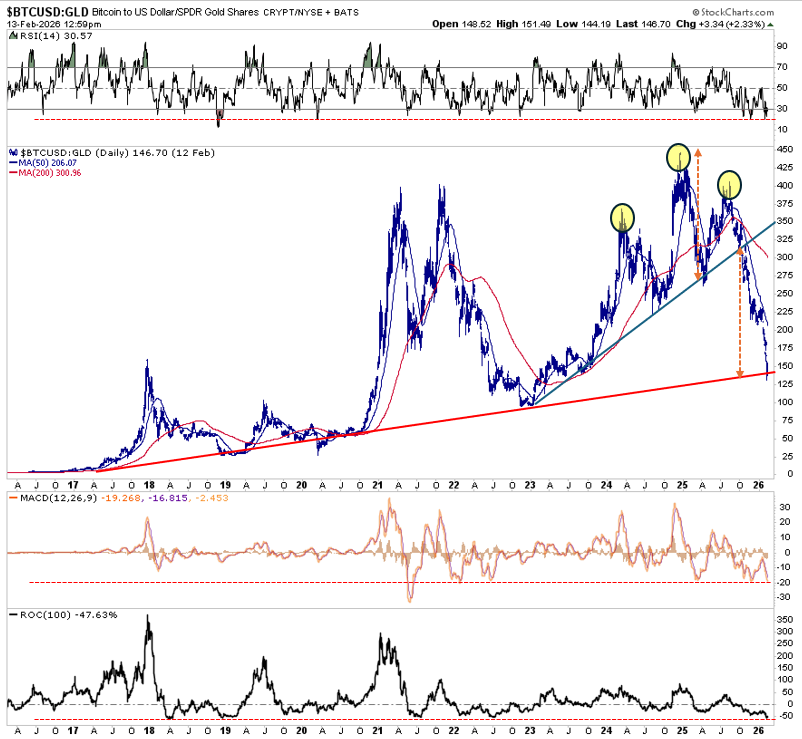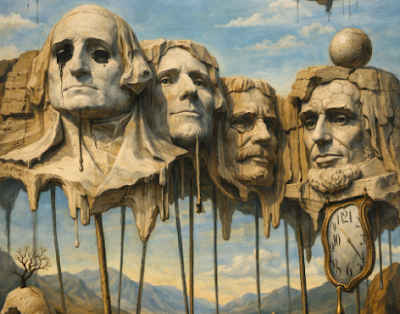On the evening of Monday, August 12, President Donald Trump sat down with Elon Musk on an X (formerly Twitter) space. There were a lot of very nice promises about massive deportations and crime crackdowns—promises which could completely reverse the demographic trends of the country and “Take Back the Streets”! A lot of anti-war rhetoric, including acknowledging the tragedies of the wars in Ukraine and Gaza, was also passed around, a promising sign for a nation that has been perpetually intervening in foreign nations, killing thousands of Americans and natives since 1898.
One recurring key talking point, a soundly winning point for Trump’s campaign, was inflation (price inflation to be specific). Everyone has noticed a sharp decline in their purchasing power. The only people who aren’t so concerned are either coddled by the state, and its various industrial complexes, or otherwise are the ones who receive new dollars hot off the presses.
Despite the focus on this winning issue, there was some confusion over the cause of a general price increase and corresponding fall in purchasing power. This may seem like mere quibbling, but I would argue the exact opposite: not much time is left to fix the country before it crumbles. Misunderstanding the causes of our problems could prove fatal for our progeny, and it could determine whether they inherit a peaceful, prosperous nation or an impoverished wasteland. Therefore, now is the best time to begin understanding this key issue.
Why exactly are all the prices rising?
The Two Definitions of Inflation
To understand anything, we must first know what our words mean. Does inflation refer to an increase in the money supply or an increase in prices? The difference matters, and there is a right answer. As the great von Mises points out:
The semantic revolution which is one of the characteristic features of our day has obscured and confused this fact. The term inflation is used with a new connotation. What people today call inflation is not inflation, i.e., the increase in the quantity of money and money substitutes, but the general rise in commodity prices and wage rates which is the inevitable consequence of inflation. This semantic innovation is by no means harmless… there is no longer any term available to signify what inflation used to signify. It is impossible to fight an evil which you cannot name.
Mises, and most Austrians, view this redefinition of inflation away from an issue of monetary policy—the existence of monetary policy itself for that matter—to an issue of rising prices as a pernicious tool to obfuscate the consequences of a government-monopolized constantly-increasing money supply. As he continues to explain:
Statesmen and politicians no longer have the opportunity of resorting to a terminology accepted and understood by the public when they want to question the expediency of issuing huge amounts of additional money. They must enter into a detailed analysis and description of this policy with full particulars and minute accounts whenever they want to refer to it, and they must repeat this bothersome procedure in every sentence in which they deal with the subject. As this policy has no name, it becomes self-understood and a matter of fact. It goes on luxuriantly.
Why would one want to “question the expediency of issuing huge amounts of additional money”? Many in my generation certainly don’t. To understand why this is destructive, we must first understand how prices function in an unhampered market.
Price Increases in the Unhampered Market
The prices of some goods, or even many goods, can naturally rise due to the changing tastes, production structures, and available resources in a society entirely unhampered by state intervention. Increases in prices would represent changes in the supply and demand of a good, allowing entrepreneurs and consumers to rationally economize according to the good’s scarcity. This is entirely natural and, as entrepreneurs accommodate for these changes in tastes and resource availability by producing more goods at the now higher price, prices would correspondingly drop as the good becomes relatively more abundant. This would counteract the effect of natural price increases.
As to the other definition of inflation, simplified as an increase in the supply of money, a society without state intervention would not experience sustained monetary inflation. The only means by which monetary inflation could occur in the unhampered market is through counterfeiting and fractional-reserve banking. The former is a concern for every monetary and legal system, and the penalty is usually so severe that few people engage in it. As a result, the effects of counterfeiting are so miniscule compared to everything else in our analysis that it can be ignored.
Fractional-reserve banking, however, could cause a bout of monetary inflation in an unhampered market, but there is no reason to believe that this would be sustained—or that the perpetrators would make it out unharmed, if history is anything to go by. If a bank maintains less than 100% reserves, and certainly as that percent trends towards 0%, there is greater risk that some entity—perhaps a rival bank, perhaps the public—redeems enough deposits at once and causes a bankruptcy. As such, only those banks which maintain full reserves would survive in the long term. More to the point, on the unhampered market, inflation is harshly punished.
If, however, the state entirely cartelizes the banking sector and monopolizes the creation and curation of money, no recourse is available against fractional-reserve banking. The law is on their side and all the banks are in the same system and are now “on the same side.” Only bank runs from the public, now highly discouraged, can lead to a bank’s insolvency. Even then, through financial necromancy on the part of the state, the bank can be zombified and kept afloat through bailouts and forced mergers.
This system of central banking under the state is what allows for sustained monetary inflation. Sustained monetary inflation causes specific prices to continually rise. First, the new money is used to purchase some good from some seller, and the price rises in response to the new demand. The seller, then, uses this money to purchase more inputs and goods, causing the prices of those inputs and goods in response to demand, and so on. There are other, more severe consequences of monetary inflation by central banks, but this is how prices generally rise as a result of an increase in the money supply.
Did Anyone Get It Right?
As Mises explained for us above, both President Trump and Musk sense that something is direly wrong, yet they have a scattershot of answers as for the cause. President Trump blamed price inflation on energy costs, whereas Musk criticized the state’s reckless spending policies, noting that they are only enabled by inflationary monetary policy. To address the former, while energy costs could lead to higher costs of production, the cost of production does not actually determine the cost of a good when it is bought and sold. Costs in a production structure are chosen by entrepreneurs who anticipate a specific price and profit, not vice versa. No matter the scale of an economy or the interconnectedness of the purchasers and sellers, if an input, like oil, as President Trump mentioned, is suddenly expensive, entrepreneurs will either move away from or drill more oil. Even if the United States government entirely prohibited more drilling in our borders, foreign entrepreneurs would fill the gap while American entrepreneurs found new energy sources. Profits would decline as a result of the increased costs, but once again, prices are not determined by costs. This would not cause a sustained and general increase in the price level.
Elon Musk, on the other hand, was far closer to the truth. He specifically blamed inflation on government spending financed by an increase in the money supply. He then offered the popular phrase that this causes more money to chase after the same amount of goods. Outside the ivory tower of minute differences in economic theory, this explanation is good for the public to know. It succinctly explains why the prices of most goods are constantly increasing, and it explains who is causing it and what they’re doing.
As soon as he gave this explanation, a phrase came to my mind: “Every successful entrepreneur is an Austrian whether they know it or not.” Musk very clearly understands that the state is impoverishing all of us and is, as they put it, penalizing savers. As a successful entrepreneur interested in advancing civilization, he quite forcefully declared his willingness to oppose reckless interventionism. Perhaps he’ll soon graduate from being an unknowing Austrian to a man willing to tell the public what the government has done to our money.
Full story here Are you the author? Previous post See more for Next postTags: Featured,newsletter





































